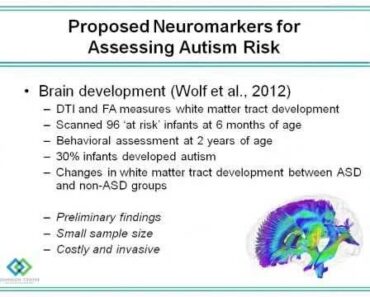Did you know that every year about 15 million babies are born preterm (1)? In 2019, in the US alone, 1 out of 10 babies was born prematurely (2). During pregnancy, the baby undergoes various stages of growth and development. The earlier the baby is born, the higher the chances of disability or death.
Read this post and know more about premature birth, its risk factors, what to expect after birth, and the preterm survival rates.
Definition Of Premature Birth
According to the World Health Organization, preterm or premature birth is defined as when babies are born alive before the completion of 37 weeks of pregnancy (1). Based on the gestational age or age of the pregnancy, preterm can be further divided into the following categories (1).
- Extremely preterm: When a baby is born before 28 weeks
- Very preterm: When a baby is born between 28 and 32 weeks
- Moderate or late preterm: When a baby is born between 32 and 37 weeks
It is usually recommended that unless there is a medical emergency or a serious health condition, cesarean birth or induced labor (induction) should not be planned before 39 weeks of gestation. However, with advances in medical sciences, it is estimated that about 9 out of 10 babies born prematurely survive and have normal growth (3).
Factors Affecting Survival Of Preterm Babies
A National Institutes of Health study that observed 4,000 newborns found that the following factors affect the survival and disability in preterm babies (4).
- Baby’s gender
- Maternal gestational age
- Birth weight
- Whether it was a singleton or multiple pregnancies
- Whether the mother was given medication to stimulate the development of fetus
The researchers found that there were better chances of survival without a disability when the baby was a female, was of older gestational age, had higher birth weight, was born as a single baby, and the mother received medication, such as antenatal steroids, to stimulate fetal growth (4).
Since preterm babies are not able to meet growth milestones during pregnancy, they may have serious health problems. In 2018, preterm birth and low-birth weight accounted for 17% mortality in newborns (2). However, babies who survive may develop breathing problems, digestive problems, or bleeding issues in the brain.
They may also have a higher risk of developing long-term health conditions, such as cerebral palsy, learning disabilities, developmental delay, or lower performance in schools (2) (5)
What To Expect After An Extremely Premature Birth?
The extremely preterm babies require advanced care from specialized experts, including obstetricians, neonatologists, maternal-fetal-medicine specialists, and other specialized pediatricians (6).
The first thing to consider after an extremely premature birth is whether the baby is breathing and whether the parents and doctors decide to resuscitate the baby. When resuscitation doesn’t work, doctors try to make the baby comfortable instead of using treatment to help them survive (7).
The treatment, in such cases, is dependent on the following factors (7).
- Whether the brain of the baby has incurred any damage, which can occur due to lack of oxygen or bleeding in the brain
- Physical health of the baby
- Gestational age at which the baby is born
The first month after birth is the most crucial period because that is when the baby experiences major problems (7).
Very rarely, babies born before 23 weeks survive. Babies born between 23 and 25 weeks may survive but may experience long-term disabilities (6). This happens because the vital organs are not completely formed.
Preterm Survival Rates
Below are the survival rates for preterm babies born at different gestational ages.
- Babies born at 24 weeks: Babies born before 24 weeks have a rare chance of survival. However, if they do survive, they may have life-long health complications. Babies born at 24 weeks have 60% to 70% chances of survival. Moreover, if the mother can remain pregnant for three or more weeks, then the chances of mortality and long-term health problems decrease significantly (8).
- Babies born at 26 weeks: Babies born at 26 weeks have about a 78% chance of survival. Moreover, in the long-term 4 out of 10 children develop problems with vision, hearing or, intellectual development (8) (9).
- Babies born at 28 weeks: Babies born at 28 weeks have an 80% to 90% chance of survival. Statistically, they only have a 10% chance of developing long-term health problems, which include breathing problems, infections, digestive problems, and blood-related problems (8).
- Babies born at 30 to 32 weeks: When a baby is born at 32 weeks, the chances of survival can be as high as 95%. Also, the chances of mortality and development of long-term health problems decrease drastically (8).
- Babies born at 34 to 36 weeks: A baby born at or after 34 weeks has similar health outcomes as that of a baby born after a complete gestation period of 40 weeks. Thus, the baby is more likely to be as healthy as the baby who was not born prematurely. Also, in the long-term, the babies do well and are generally as healthy as full-term babies. However, doctors may still recommend hospital (neonatal) care for one or two more weeks (8).
It is important to note that statistics may not apply to all babies. Every baby is different. Also, survival rate factors, mentioned earlier, have a significant role to play in the prognosis.
Risk Of Disabilities At Each Stage
Preterm babies may develop various health problems, including (7):
- Cerebral palsy: Its signs may appear when the child is between one and three years old.
- Learning disabilities: These may appear when the child starts school.
- Behavioral problems: Attention deficit hyperactivity disorder (ADHD) may be noticeable when the child is older.
The chances of developing health problems may vary according to the age (7) (9).
- For babies born at 24 weeks, 60% of them may not have a disability at three years of age.
- For babies born at 25 weeks, 70% of them may not have a disability at three years of age.
- For babies born at 26 weeks, 80% of them may not have a disability at three years of age.
About 50% of babies born between 23 and 25 weeks may develop behavior- and attention-related problems by the age of six years. They may also have difficulty adjusting to school (7).
Nearly 40% of babies born between 25 and 26 weeks may develop problems related to hearing, vision, and intellectual development. These problems may carry on to adulthood (7).
What To Ask Your Doctor?
During pregnancy, you should make sure to visit your doctor for antenatal care during the first 12 weeks. The doctor can predict your due date, perform necessary physical exams, and discuss risk factors or concerns, if any (8). The doctor can also determine the presence of any infection or inflammation between 10 and 18 weeks of pregnancy to avoid any risk factors.
Knowing about the following can help you prepare well for taking care of the baby. You may ask the following questions to the doctor to dispel your doubts.
- What is the gestational age at which my baby will be born?
- Does the baby have any developmental issues before birth? What are the associated complications of it? What tests were run to check the severity?
- What treatments will be used in my baby’s care before birth? What are the risks and benefits of each of these treatments? Are there any alternatives?
- What consequences should I look out for after discharge from the hospital? What can be the potential health problems in the first year or when the child starts school?
- What type of follow-up will my baby need after birth? How many revisits might be required after birth?
The earlier the baby is born, the lower the chances of survival. Thankfully, advancements in medical technology may help the doctor determine the risk way earlier, thus letting you prepare better. The age threshold at which a preterm baby is free of any danger may vary, and the child may still require long-term monitoring. Adequate prenatal care, understanding and avoiding risk factors, and regular checkups could help improve the survival rate of the baby in case they are born prematurely.

































